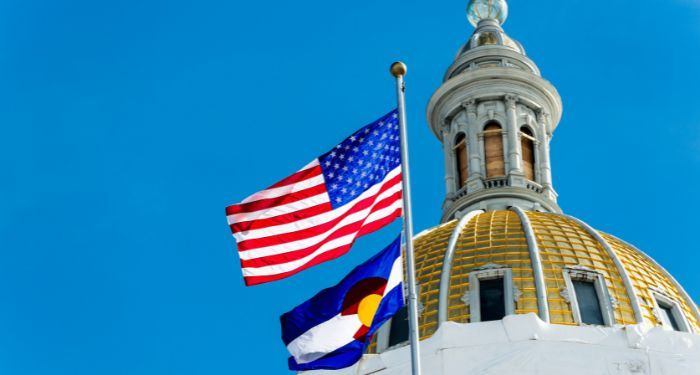
In January, Colorado legislators proposed measures that would curb book bans across the state. The bill, SB-049, did progress and thus, never got heard during that session. As a result, it was postponed indefinitely at the end of February. But good news for Colorado residents: a new, similar anti-book ban bill has been proposed and it is making its way through both sides of the legislature.
Senate Bill 216, known as the Standards for Decisions Regarding Library Resources, was introduced May 24. The prime sponsors were Lisa Cutter, Dafna Michaelson Jenet, Eliza Hamrick, and Junie Joseph. The bill requires every public library in the state to have policies related to acquiring, retaining, displaying, and using library materials, as well as use of the library itself. For libraries that allow book and other materials challenges, policies related to challenges must be written and available.
Public libraries without established policies may not put materials through a challenge process nor remove the items following complaints. Moreover, all policies and decisions related to materials being challenged in the collection are to be made readily available to the public.
All of the above seems fairly standard public library practice, but many libraries–particularly those which are small, rural, or not staffed by certified librarian–do not have these policies in order. This would make having policies standard and more, ensure that there is a clear policy relating to book and materials challenges. Just as libraries work to protect the First Amendment Rights of all by making materials available, they must also protect the right to petition and allow patrons to challenge said materials. The bill would ensure that the library is making the process transparent, it would identify who may submit a book challenge and what information is required for the challenge to be put through the official process.
One of the most important parts of this legislation, though, is the protections it provides library professionals:
The bill specifies that a librarian, media specialist, other employee, contractor, or volunteer (employee) at a public library is not subject to termination, demotion, discipline, or retaliation for refusing to remove a library resource before it has been reviewed in accordance with the public library’s policy for the reconsideration of library resources or for making displays, acquisitions, or programming decisions that the employee believes, in good faith, are in accordance with the standards established in the bill.
Unlike states like Idaho, which have passed laws that allow individuals to file lawsuits against library workers if they feel materials are inappropriate, Colorado would protect its library workers from such legal recourse. This is a huge signal to library workers across the state that they are trusted professionals who best know how to do their jobs.
SB 216 passed through the Senate quickly, and it is up for its second hearing in the House. The hearing is scheduled for today, May 7, 2024.
Colorado has not been immune to book challenges and book bans over the last several years. In fact, some communities in the state have seen significant upticks in discriminatory attacks by book banners and those who have spread false narratives about the purpose of drag story times in public libraries. High Plains Library District fired one of its own librarians when she sounded the alarm about their discriminatory policies; she won a settlement against the library.
This month, Garfield County commissioners began appointing the public library board. Since 2008, the board itself appointed new members, but the county commissioners took over the process last fall in a hyper-partisan manner, following citizen complaints over materials in the children’s collection and comics collection–the same kinds of complaints seen nationwide founded on false narratives and rhetoric pushed by far-right groups like Moms For Liberty and No Left Turn in Education (Trish O’Grady, leader of the push against “pornography” in the Garfield County libraries proudly calls herself a “conservative Christian”).
The American Library Association recorded eight attempts to restrict access to books in Colorado between January and August 2023 alone, with 136 book titles challenged. This placed the state among the top for censorship attempts in this time frame. PEN America recorded eight book bans in school districts during the 2022-2023 school year. Among the institutions that experienced book challenges and bans in the last year are Douglas County Public Library, Academy District 20, Greeley-Evans School District 6, Wellington Public Library, Gunnison County District Library, Monte Vista School District, and others.
If you’re a Colorado resident, take 10 minutes to write your representatives in support of the bill. You can find your representatives here. You have a wealth of statistics at your fingertips, including those found in the recent Book Riot x Every Library Institute research about how much libraries are supported by their communities.

